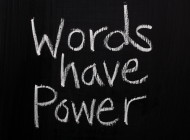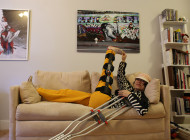“You’re too emotional, unable to think reasonably,” I’m often told.
I arrived at the Quezon City terminal on a Sunday after a long commute in a standing-room-only bus. I decided to go to Mass, it being Divine Mercy Sunday. In church, the reality of my unbathed self dawned on me. I sat at the far end of a pew reserved for Eucharistic ministers. They gave me such a look. My hair was unkempt, my shirt damp with day-old sweat—and oh, my feet! I forgot to wash away the lahar before traveling.
I tried hard to pray, to tap into that reservoir of joy that I thought I could find in church, in communion, in solidarity with fellow believers. But then, my mind drifted to the countryside, to the scenes I had just witnessed, to the people I had just met. I left after Mass just as I had left the people on whose faces Christ revealed Himself to me.
There was joy in seeing family, even if maybe it was not shared. I partook of our regular Sunday. We made it to the park at Salcedo Village to look at some art. Even there, I felt like I was moving along aimlessly. The artists, the visions, the works that used to strike me didn’t quite do as they used to. I was startled by the vanity, the excess, the waste of food on the tables. Even the art hanging on the walls seemed suffocated by the people’s need to photograph it. How difficult to stand in front of a piece and wonder what I was seeing, and where it was taking me.
We can’t help the way things are, and since we view them with different eyes, judging ought to be the last recourse. I pray that this wisdom does not escape me, even when the times become trying.
And then I’m told to be reasonable. I’m sorry, I can’t be. It is all luxury to me: that I can even sit here and think about how I really feel, and gather the words together to make coherent paragraphs. I am fiercely angry, but it is no longer the anger of a hand turning into a fist, but of the blooming of fingers revealing a naked palm. I am asking to feel some more, you see, even if I feel so much already.
There is a reason leftist ideology and a politician’s charm appeal to the poor and the wretched of this land. All the narratives promise freedom, the breaking of the yoke, the ease of hunger, and the letup of violence felt only by the poor.
The Sama Dilaut father said to me, “When my children are hungry, they go to sleep to forget that their bellies are empty.” Well, sir, I am full from the bounty of this table, and I choose to be awake, for your sake and mine. And for these lands that we are only borrowing from the Earth whose bosom ought to feed all of us.
Some time ago, I thought about writing as an activity, as an act, as a privilege, as the only freedom I know. I also thought about silence. What did I really fear that made me cloak certain words and thoughts, making them invisible? Who am I really lending my voice to?
To be reasonable escapes me because I want, as our farmers do, to be free. I know that the only way I can ever have a voice of my own is through them—through all of these people I’ve met who are marginalized, oppressed, silenced. They have given me their precious stories to tell. They have given me their names and those of their children. They have spoken in an attempt to be heard, and it does not matter to them if it is my name that readers will remember.
In their tongue, they said: “I have nothing to ask of you, just that I am able to tell my story. This is my life. This is what happened to us.”
If silence is all I can give them, then what kind of a writer am I?
—
Nash Tysmans, 28, is also a teacher and community worker.
Republished from The Inquirer with the writer’s permission
Tags: faith freedom Philippines poverty writing




















0 Comment